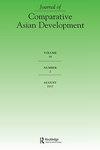日本福岛后低碳转型驱动因素分析:跨城市电力消费比较
Q3 Social Sciences
引用次数: 4
摘要
2011年3月11日发生的福岛第一核电站核灾难将永远被人们铭记为一生一次的悲剧。尽管如此,福岛核事故后日本能源体系的变化可能会给后代留下更可持续的遗产。越来越多的文献假设,像这样的转变有可能重塑日本的能源系统,因为:(1)外生冲击;(2)使政策改革成为可能;(3)在民间社会组织的支持下获得动力。然而,这一套索赔主要是基于欧洲国家一级的小型定性案例研究。在亚洲多个城市测试低碳转型的假设是一个重要的机会。本文通过对日本18个城市2007年至2012年电力使用时序数据的计量经济学分析,填补了这一空白。结果表明,在福岛核事故后实施节能政策改革的日本城市,其家庭年用电量的减少幅度大于未实施改革的城市。与此同时,由于福岛灾难和震后政策的影响,非营利组织(NPOs)集中度较高的城市,家庭年用电量的减少幅度更大。该研究强调了测试过渡理论的困难,以及需要定性研究来补充对过渡的定量研究的推论。本文章由计算机程序翻译,如有差异,请以英文原文为准。
Analysing Drivers of Low Carbon Transitions in Post-Fukushima Japan: A Cross-City Comparison of Electricity Consumption
Abstract The 11 March 2011 Fukushima Daiichi nuclear disaster will forever be remembered as a once-in-a-lifetime tragedy. The changes to Japan's energy system following Fukushima may nonetheless leave future generations with a more sustainable legacy. A growing body of literature hypothesizes that transitions like this one have the potential to reshape Japan's energy system due to (1) an exogenous shock which (2) enables policy reforms that (3) gain momentum with the support of civil society organizations. However, this set of claims is based chiefly on small-n qualitative case studies at the national level in Europe. A significant opportunity exists to test the hypotheses on low carbon transitions across multiple cities in Asia. This article begins to fill that void with an econometric analysis of electricity use time-series data for 18 Japanese cities from 2007 to 2012. The results suggest that Japanese cities adopting post-Fukushima energy savings policy reforms experienced greater reductions in annual household electricity use than those not adopting reforms. At the same time, cities with higher concentrations of non-profit organizations (NPOs) saw greater reductions in annual household electricity use from the Fukushima disaster as well as post-shock policies. The research underscores the difficulties of testing transition theories and the need for qualitative research to complement inferences from quantitative studies on transitions.
求助全文
通过发布文献求助,成功后即可免费获取论文全文。
去求助
来源期刊

Journal of Comparative Asian Development
Social Sciences-Political Science and International Relations
CiteScore
1.30
自引率
0.00%
发文量
2
期刊介绍:
The Journal of Comparative Asian Development (JCAD) aims to offer the most up-to-date research, analyses, and findings on the many aspects of social, economic, and political development in contemporary Asia conducted by scholars and experts from Asia and around the world.
 求助内容:
求助内容: 应助结果提醒方式:
应助结果提醒方式:


